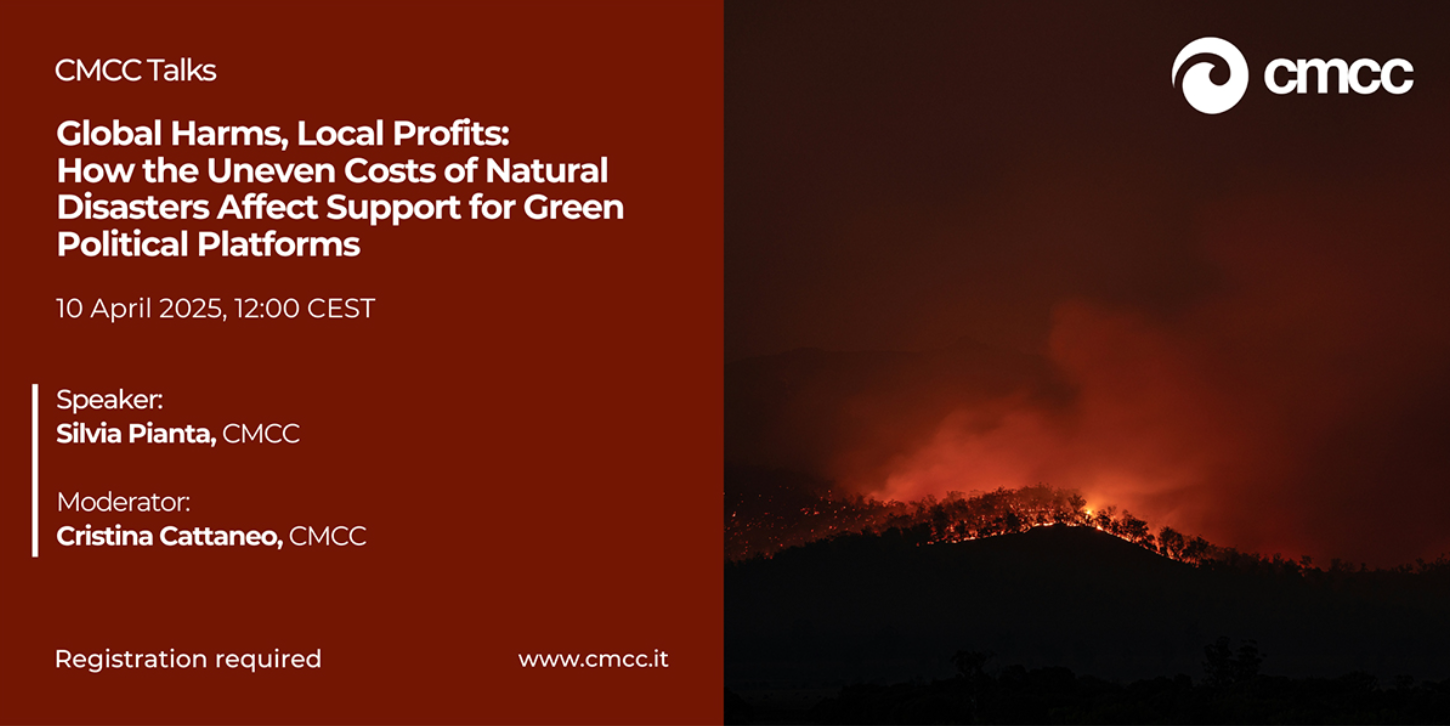
CMCC TALKS: Global Harms, Local Profits: How the Uneven Costs of Natural Disasters Affect Support for Green Political Platforms
Extreme events are becoming increasingly common due to climate change. While conventional wisdom suggests that firsthand experiences with natural disasters foster green coalitions by raising awareness of environmental degradation, we propose an alternative view: natural disasters can heighten the perceived trade-off between economic development and environmental policies. This study, conducted within the framework of the ADJUST project coordinated by CMCC and funded by the European Union’s Horizon Europe programme, examines the case of Brazil, where large-scale fires, by clearing natural vegetation, create new opportunities for land grabbing and the expansion of agriculture and livestock production. Using satellite, administrative, and electoral data, we show that large-scale fires increase support for green candidates only in municipalities unlikely to gain economically from the fires. Survey data further indicates that voters prioritize environmental protection over economic growth only when they stand to receive limited or no benefit from the newly cleared land. Our findings suggest that the potential for natural disasters to foster green coalitions is contingent upon their distributive effects.
Speaker:
Silvia Pianta, CMCC
Moderator:
Cristina Cattaneo, CMCC
For further information and registration click HERE
